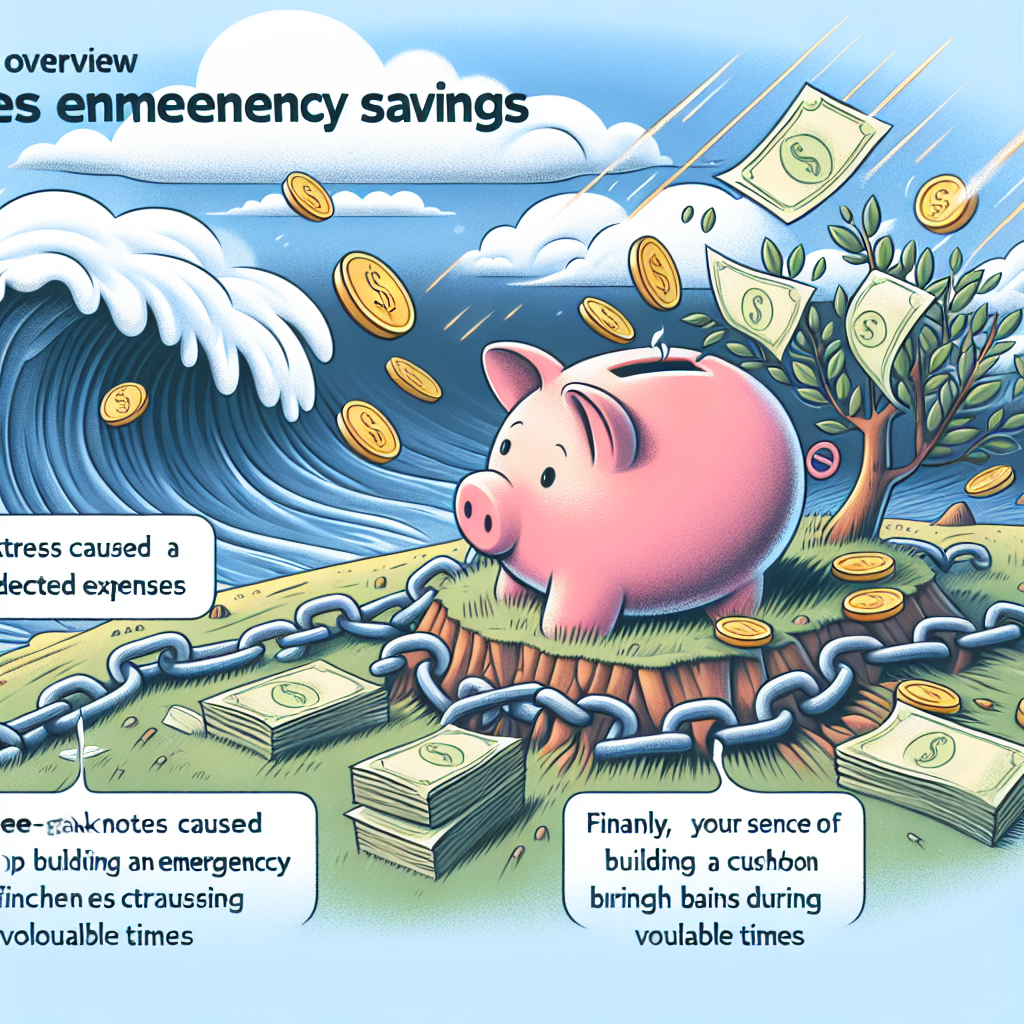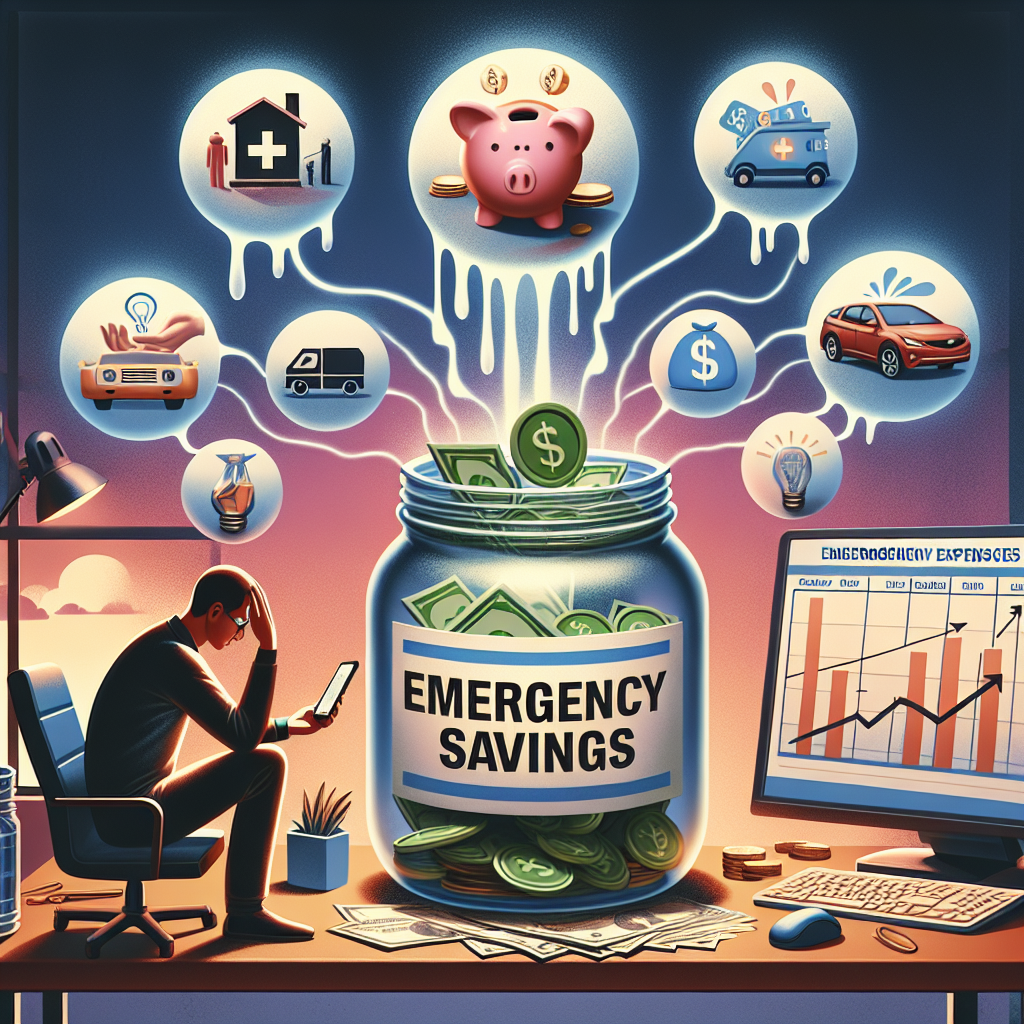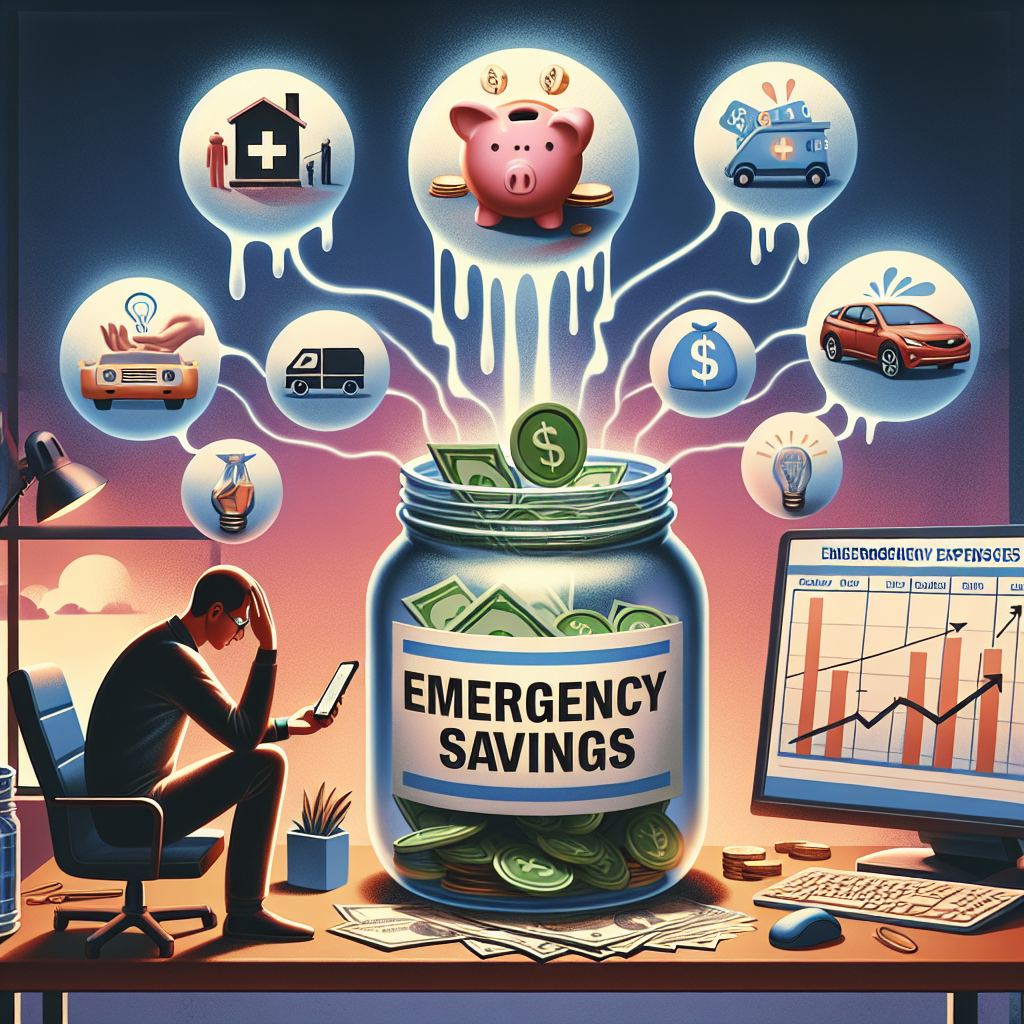Imagine a life where unexpected expenses don’t send your finances into a tailspin, where you have peace of mind knowing that you’re prepared for any financial curveball that may come your way. That’s exactly what emergency savings can offer you. In an era where financial stability is more important than ever, having a financial buffer to fall back on in times of need is absolutely essential. In this article, we explore why emergency savings should be a top priority for everyone looking to achieve long-term financial security and peace of mind.

The Importance of Emergency Savings
Having emergency savings is crucial for your financial stability and overall well-being. It provides a safety net to help you navigate through unexpected situations and emergencies without jeopardizing your long-term financial goals. In this article, we will explore the various reasons why emergency savings are essential and how they can protect you from the financial strain caused by unforeseen events.
1. Financial Stability
1.1. Definition of Financial Stability
Financial stability refers to the state of having enough financial resources to sustain your lifestyle and cover essential expenses even in the face of unexpected circumstances. It means having a solid financial foundation and being prepared for any curveballs life may throw at you.
1.2. Link between Emergency Savings and Financial Stability
Emergency savings play a vital role in achieving financial stability. They act as a buffer to protect your financial resources and provide a sense of security during times of uncertainty. By having emergency savings set aside, you are better equipped to handle unforeseen expenses without disrupting your regular budget or going into debt.
2. Unexpected Expenses
2.1. Examples of Unexpected Expenses
Unexpected expenses can arise at any moment, and without a robust emergency fund, they can quickly derail your finances. Some examples of unexpected expenses include medical bills not covered by insurance, major car repairs, home appliance breakdowns, and unplanned travel expenses for family emergencies.
2.2. Consequences of Unplanned Expenses
When faced with unplanned expenses and no emergency savings to rely on, the consequences can be overwhelming. Without the financial means to cover these unexpected costs, you may be forced to take on high-interest loans, accumulate credit card debt, or deplete your regular savings. This can lead to a downward spiral of financial stress, impacting your overall well-being and long-term financial goals.
3. Protection Against Job Loss
3.1. Job Insecurity in Today’s Economy
With the ever-changing job market and global economic uncertainties, job security is becoming increasingly uncertain. No matter how stable your current employment may be, unexpected job loss can happen to anyone. Having emergency savings acts as a safeguard against such situations, giving you the much-needed time and financial support to find a new job without compromising your financial stability.
3.2. Impact of Job Loss on Financial Stability
Losing your source of income can have a significant impact on your financial stability and overall well-being. Without emergency savings, you may struggle to meet your basic living expenses, bills, and financial obligations. This can lead to stress, anxiety, and even jeopardize your ability to secure a new job as you may be forced to settle for less favorable positions out of desperation.

4. Medical Emergencies
4.1. Cost of Medical Treatments
Medical emergencies can strike at any time, and the costs associated with treatments and care can be astronomical. Even with health insurance coverage, there may be out-of-pocket expenses such as deductibles, co-pays, or non-covered procedures. Emergency savings can help you navigate through these unexpected medical expenses without compromising your overall financial well-being.
4.2. Importance of Emergency Savings for Health
Aside from the financial implications, emergency savings also play a crucial role in your physical and mental well-being. Knowing that you have the means to cover unforeseen medical expenses provides peace of mind and allows you to focus on your recovery without the added stress of financial burden. It also enables you to seek necessary medical attention promptly, preventing potential complications that may arise from delayed treatment.
5. Emergencies in Home or Car
5.1. Home Repairs and Maintenance
Owning a home comes with its fair share of unexpected expenses. From sudden plumbing issues to a leaking roof, unforeseen repairs and maintenance can put a strain on your finances if you do not have emergency savings to rely on. Having a dedicated fund allows you to address these emergencies promptly, ensuring the safety and functionality of your home.
5.2. Car Repairs and Accidents
Similarly, unforeseen car repairs or accidents can wreak havoc on your budget if you are unprepared. Emergency savings can help cover the costs of repairs, towing services, or even a rental car while your vehicle is being fixed. This allows you to get back on the road quickly and resume your daily activities without incurring high credit card debt or taking out expensive loans.

6. Avoiding Debt and High-Interest Loans
6.1. Role of Emergency Savings in Debt Prevention
One of the main benefits of emergency savings is its ability to protect you from falling into debt. By having money set aside for unforeseen expenses, you can avoid relying on credit cards or taking out high-interest loans to cover emergencies. This helps maintain your overall financial health and prevents the accumulation of debt that can be difficult to repay in the long run.
6.2. Repercussions of High-Interest Loans
Borrowing money at high-interest rates can have lasting negative implications on your financial well-being. It not only increases the cost of the emergency but also adds an additional burden in the form of interest payments. By having emergency savings, you can avoid these repercussions and protect yourself from the cycle of debt that often accompanies high-interest loans.
7. Peace of Mind and Reduced Stress
Having emergency savings brings a profound sense of peace of mind and reduced stress. Knowing that you have funds set aside for unexpected situations allows you to navigate through life’s challenges with a greater sense of security. You can face emergencies head-on, knowing that you have the financial means to address them without causing significant disruption or hardship to your overall financial stability.

8. Building a Strong Financial Foundation
Emergency savings are a crucial component in building a strong financial foundation. They provide you with the tools necessary to weather unforeseen circumstances, protecting your long-term financial goals and aspirations. By consistently prioritizing and growing your emergency fund, you establish a strong safety net that reinforces your overall financial health and empowers you to pursue future endeavors.
10. Emergency Savings vs. Traditional Savings
10.1. Differences between Emergency and Traditional Savings Accounts
While traditional savings accounts are an essential part of personal finance, they differ from emergency savings accounts in their purpose and accessibility. Traditional savings accounts are typically used for long-term goals and are not easily accessible to cover immediate emergencies. Emergency savings accounts, on the other hand, are designed specifically to address unexpected circumstances and provide quick access to funds when needed.
10.2. Optimal Usage of Each Type of Account
To optimize the usage of both types of accounts, it is recommended to prioritize emergency savings before focusing on other long-term savings goals. By setting aside a predetermined amount each month into your emergency fund, you can build a solid foundation of liquid assets to cover unexpected expenses. Once your emergency savings are adequately funded, you can then allocate additional funds towards traditional savings accounts for future goals such as retirement or education.
In conclusion, emergency savings are crucial for your financial stability and overall well-being. They provide a safety net to protect you from unexpected expenses, job loss, medical emergencies, home or car repairs, and the pitfalls of debt. By prioritizing and consistently building your emergency fund, you can enjoy peace of mind, reduce financial stress, and build a strong financial foundation for your future. Start saving today and secure your financial well-being for tomorrow.


